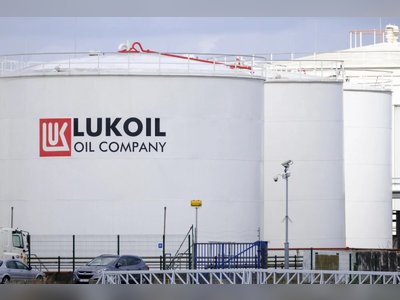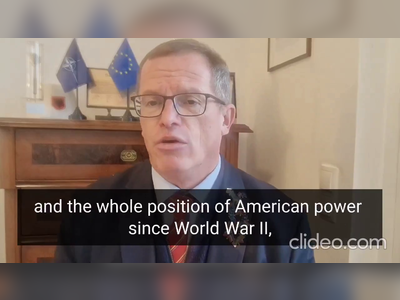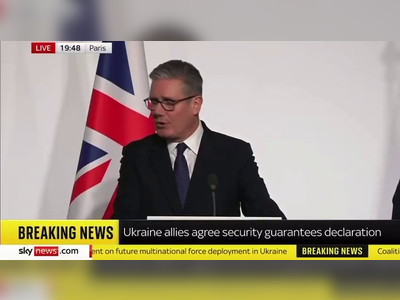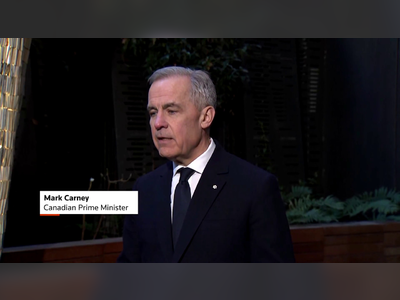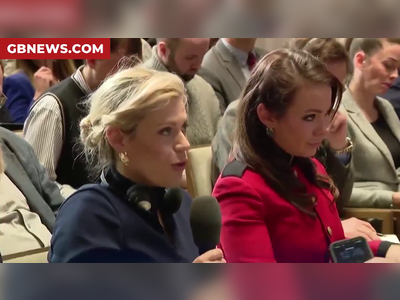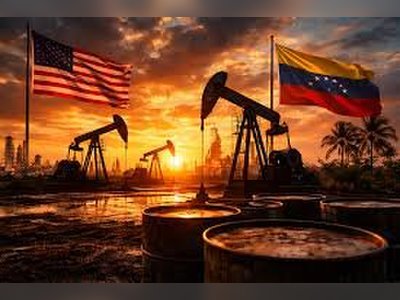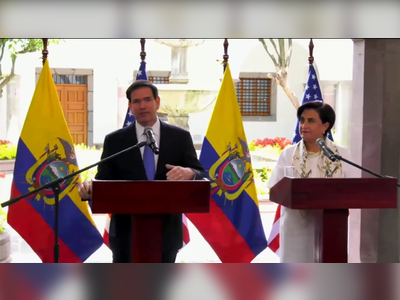Gas Transit Dispute Between Russia and Ukraine Intensifies Energy Concerns in Europe
As Russian-Ukrainian negotiations halt, Europe braces for energy cost implications amidst rising gas prices.
Amidst the geopolitical tensions between Russia and Ukraine, the cessation of the gas transit agreements has surfaced as the most significant shift in the energy landscape of 2023. With the expiration of the Russia-Ukraine gas transit agreement on December 31, 2022, and no extension in place, European nations are feeling the ripple effects.
The disagreement was foreshadowed last year as Ukraine expressed hesitancy to extend the contract.
Without the transit route between Russia and Ukraine, other regional players like Hungary find their energy systems and geopolitical position elevated.
Hungary's establishment of interconnectors with neighboring countries bolsters its stance significantly.
An anonymous source from the Hungarian energy sector noted to Index that the value of Hungary’s gas system has tripled due to these developments.
The far-reaching impact stretches beyond Hungary to the broader European Union.
Although member states have not felt a gas shortage this winter, they face substantial economic disruptions.
The Dutch Title Transfer Facility (TTF) – the principal gas trading point in Europe – recorded a 35% price increment for year-long contracts and a 9% increase for monthly contracts over the past six months.
The climatic conditions, exacerbated by a more severe Russian-Ukrainian conflict and reduced wind energy production, intensified demand, explained an analysis by Equilor Investment.
Notably, the gas price surged post the transit halt in January, though a correction followed shortly with prices settling from 49 euros/MWh to approximately 38-39 euros/MWh at the Dutch TTF.
The continual decline in gas transmission through Ukraine in recent years meant that the end of transit caused only a moderate price hike.
The halt in gas transit inevitably drives short-term prices higher, with nations like Austria and Slovakia, formerly reliant on the Ukrainian transit route, being most vulnerable.
These countries now resort to acquiring gas at higher costs from alternate sources, with Austria initially anticipating a 10% price surge.
Regős Gábor of Gránit Fund Management highlighted the potential transition from Russian gas to more expensive Liquefied Natural Gas (LNG), despite continued Russian gas arrival via Turkey.
This shift portends market shortages in meeting regional demands.
Gábor further explained that Europe's competition with higher price levels could undermine its economic stability, impacting nations such as Hungary significantly.
The increased expenditures inflate budgetary concerns, depreciate local currencies like the forint, and consequently affect broader economic performance.
The United States, however, capitalizes on this shortfall by escalating its LNG exports, with quantities doubling since 2019 and more than half directed to Europe in recent months, showcasing their economic adaptation amidst the crisis.
Historical trends saw gas prices at the Dutch TTF range between 10 to 20 euros/MWh in 2019, dropping below 5 euros during low-demand months of 2020. However, prices have climbed progressively due to the post-COVID resurgence, with a significant spike in 2022, reached highs of 240 euros/MWh amidst war-driven supply uncertainties.
Despite subsequent price stabilization, the current downturn remains a response to the ongoing supply chain disruptions, rather than a complete resolution.
While market equilibrium remains uncertain, immediate price legacies suggest a settling above pre-crisis levels of 2018-2019. Regős attributes current increases to the contracted Russian supply, lower storage levels, speculation, and colder-than-anticipated weather.
Amid intensifying market fluctuations, the Hungarian populace is cushioned by instituted energy price regulations, sparing direct retail impact despite broader economic ramifications for the country.
Recent data from the Hungarian Energy and Public Utility Regulatory Authority (MEKH) shows Budapest’s energy users benefit from some of the lowest household energy costs in Europe.
Although these valuations reflect consumer savings under state protections, they impose fiscal strains, manifested in budgetary impacts and contributing to Hungary’s economic vulnerabilities.
This necessitates a strategic adjustment in energy consumption, efficiency, and diversification—complex challenges mirroring the intricate geopolitics of modern energy reliance.
The disagreement was foreshadowed last year as Ukraine expressed hesitancy to extend the contract.
Without the transit route between Russia and Ukraine, other regional players like Hungary find their energy systems and geopolitical position elevated.
Hungary's establishment of interconnectors with neighboring countries bolsters its stance significantly.
An anonymous source from the Hungarian energy sector noted to Index that the value of Hungary’s gas system has tripled due to these developments.
The far-reaching impact stretches beyond Hungary to the broader European Union.
Although member states have not felt a gas shortage this winter, they face substantial economic disruptions.
The Dutch Title Transfer Facility (TTF) – the principal gas trading point in Europe – recorded a 35% price increment for year-long contracts and a 9% increase for monthly contracts over the past six months.
The climatic conditions, exacerbated by a more severe Russian-Ukrainian conflict and reduced wind energy production, intensified demand, explained an analysis by Equilor Investment.
Notably, the gas price surged post the transit halt in January, though a correction followed shortly with prices settling from 49 euros/MWh to approximately 38-39 euros/MWh at the Dutch TTF.
The continual decline in gas transmission through Ukraine in recent years meant that the end of transit caused only a moderate price hike.
The halt in gas transit inevitably drives short-term prices higher, with nations like Austria and Slovakia, formerly reliant on the Ukrainian transit route, being most vulnerable.
These countries now resort to acquiring gas at higher costs from alternate sources, with Austria initially anticipating a 10% price surge.
Regős Gábor of Gránit Fund Management highlighted the potential transition from Russian gas to more expensive Liquefied Natural Gas (LNG), despite continued Russian gas arrival via Turkey.
This shift portends market shortages in meeting regional demands.
Gábor further explained that Europe's competition with higher price levels could undermine its economic stability, impacting nations such as Hungary significantly.
The increased expenditures inflate budgetary concerns, depreciate local currencies like the forint, and consequently affect broader economic performance.
The United States, however, capitalizes on this shortfall by escalating its LNG exports, with quantities doubling since 2019 and more than half directed to Europe in recent months, showcasing their economic adaptation amidst the crisis.
Historical trends saw gas prices at the Dutch TTF range between 10 to 20 euros/MWh in 2019, dropping below 5 euros during low-demand months of 2020. However, prices have climbed progressively due to the post-COVID resurgence, with a significant spike in 2022, reached highs of 240 euros/MWh amidst war-driven supply uncertainties.
Despite subsequent price stabilization, the current downturn remains a response to the ongoing supply chain disruptions, rather than a complete resolution.
While market equilibrium remains uncertain, immediate price legacies suggest a settling above pre-crisis levels of 2018-2019. Regős attributes current increases to the contracted Russian supply, lower storage levels, speculation, and colder-than-anticipated weather.
Amid intensifying market fluctuations, the Hungarian populace is cushioned by instituted energy price regulations, sparing direct retail impact despite broader economic ramifications for the country.
Recent data from the Hungarian Energy and Public Utility Regulatory Authority (MEKH) shows Budapest’s energy users benefit from some of the lowest household energy costs in Europe.
Although these valuations reflect consumer savings under state protections, they impose fiscal strains, manifested in budgetary impacts and contributing to Hungary’s economic vulnerabilities.
This necessitates a strategic adjustment in energy consumption, efficiency, and diversification—complex challenges mirroring the intricate geopolitics of modern energy reliance.
AI Disclaimer: An advanced artificial intelligence (AI) system generated the content of this page on its own. This innovative technology conducts extensive research from a variety of reliable sources, performs rigorous fact-checking and verification, cleans up and balances biased or manipulated content, and presents a minimal factual summary that is just enough yet essential for you to function as an informed and educated citizen. Please keep in mind, however, that this system is an evolving technology, and as a result, the article may contain accidental inaccuracies or errors. We urge you to help us improve our site by reporting any inaccuracies you find using the "Contact Us" link at the bottom of this page. Your helpful feedback helps us improve our system and deliver more precise content. When you find an article of interest here, please look for the full and extensive coverage of this topic in traditional news sources, as they are written by professional journalists that we try to support, not replace. We appreciate your understanding and assistance.


